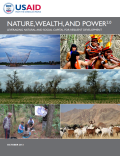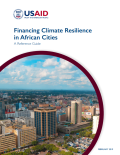This assessment, Global Environment Outlook 6: Regional assessment for Pan-European , argues for more urgent action, both through existing policies and the implementation of the 2030 Agenda for Sustainable Development (2030 Agenda), to address the challenges that the region is facing.
This assessment, Global Environment Outlook 6: Regional assessment for Asia and the Pacific , analyzes key environmental themes on air, land, biota and ecosystems, freshwater, coasts and oceans, and waste using the drivers-pressures-state-impact-response (DPSIR) framework, shows accelerating environmental degradation widely across the region and its impact on human wellbeing.

Nature, Wealth and Power 2.0: Leveraging natural and social capital for resilient development is a framework that allows practitioners, planners, and policy-makers in a number of places to see the various interlinked dimensions of rural development, and develop and implement programs that are more successful and sustainable.

This reference guide, Financing Climate Resilience in African Cities, from the USAID-funded Adaptation Thought Leadership and Assessments (ATLAS) project provides an overview of the wide range of finance mechanisms available to governments to fund climate resilience initiatives at both the national and local level. The guide also outlines the opportunities and challenges for municipal governments in sub-Saharan Africa to use select finance mechanisms to provide for their citizens needs as cities grow and the climate changes, providing illustrative interventions to increase the change of each mechanism’s success.

Under the theme of ‘Healthy Planet, Healthy People,’ UN Environment’s sixth Global Environment Outlook (GEO-6) presents a comprehensive assessment of the state of the global environment, covering a range of topics, issues and potential solutions with contributions from over 250 scientists and experts from more than 70 countries.
